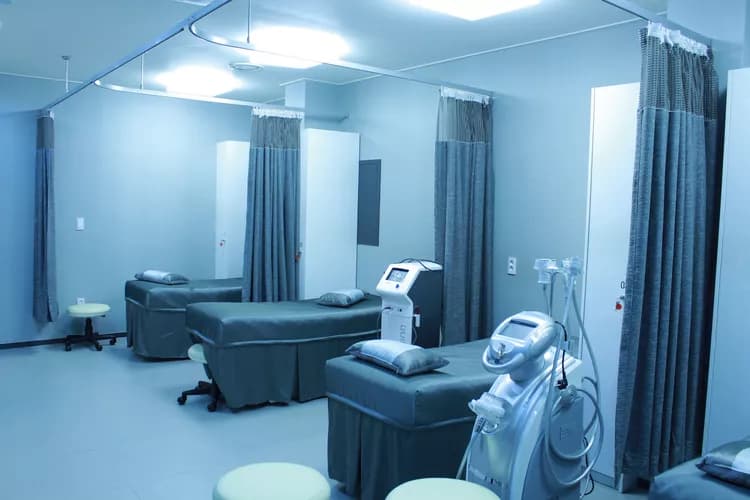
Low-Cost, High-Volume Services Make Up Big Portion Of Spending On Unneeded Health Care
Low-cost, high-volume health services account for a high percentage of unnecessary health spending, adding strain to the health care system, new UCLA-led research suggests.
Analyzing data on 5.5 million patients in Virginia, the researchers found that services providing no net health benefits to patients cost that state's health care system more than $586 million in 2014. Of that amount, 65 percent went to low-cost, high-volume services such as unnecessary lab tests.
The findings are published in the October issue of the peer-reviewed journal Health Affairs.
The researchers relied on a large Virginia claims database because it is one of the few datasets that reflect payments from nearly all types of sources, said lead author Dr. John Mafi, assistant professor of medicine in the division of general internal medicine and health services research at the David Geffen School of Medicine at UCLA. These sources include fee-for-service Medicare, Medicare Advantage, Medicaid, private insurance and out-of-pocket costs.
These findings, he said, can serve as a microcosm for the nation's health system as a whole.
"Rising health care costs are putting an increasing strain on U.S. families, and from a taxpayer perspective we spend $3.2 trillion each year on health care," said Mafi, who is also a natural scientist in health policy at RAND Corporation. "That's nearly 18 percent of the nation's gross domestic product and of that $3 trillion, up to 30 percent is considered wasteful."
He said that instead of cutting coverage for all services, which could harm people who truly need them, policymakers should focus on reducing the health services of little health value to more safely reduce costs.
"Among the measures we studied, it was the low-cost, high-volume services that contributed the most to unnecessary health spending," Mafi said. "This is very important because it suggests that minor actions by all clinicians can play a major role in reducing unnecessary health care spending."
The researchers analyzed 44 services that are "low value" in specific clinical situations according to evidenced-based guidelines. These services do not represent all low-value care, and likely represent only a small proportion of care having little or no health benefits. They included lab tests for low-risk patients undergoing low-risk surgeries; stress cardiac or other cardiac imaging in low-risk patients without symptoms; routine head CT scans for simple dizziness; and imaging within the first six weeks of onset for low back pain that typically resolves itself.
They found that the 5.5 million people in the database received 5.4 million of the 44 services. Of that number, 1.7 million were low value, meaning they were medically unnecessary, and 3.4 million were high-value services that carried health benefits. Looking at the low-value services, they found that 1.6 million (93 percent) were very low cost and low cost, compared with 119,000 (7 percent) that were high and very high cost.
The cost for low- and very-low-cost, low-value services totaled $381 million, compared with $205 million for high- and very-high-cost, low-value services. This $586 million represented 2.1 percent of Virginia's total $28 billion in health care costs for the year.
Overall, about 20 percent of the 5.5 million people received at least one low-value service during the year analyzed.
"Given current levels of health care spending, the only way we can create headroom for innovation is to identify and eliminate low-value care," said Dr. A. Mark Fendrick, director of the University of Michigan Center for Value-Based Insurance Design, and the study's senior author. "An initial approach that targets the reduction of high-volume and less costly items might be a more strategic way to spark the movement to tackle the problem of low-value care."
Materials provided by University of California - Los Angeles Health Sciences. Note: Content may be edited for style and length.
Disclaimer: DoveMed is not responsible for the accuracy of the adapted version of news releases posted to DoveMed by contributing universities and institutions.
References:
John N. Mafi, Kyle Russell, Beth A. Bortz, Marcos Dachary, William A. Hazel, A. Mark Fendrick. (2017). Low-Cost, High-Volume Health Services Contribute The Most To Unnecessary Health Spending. Health Affairs. DOI: 10.1377/hlthaff.2017.0385
Related Articles
Test Your Knowledge
Asked by users
Related Centers
Related Specialties
Related Physicians
Related Procedures
Related Resources
Join DoveHubs
and connect with fellow professionals

0 Comments
Please log in to post a comment.